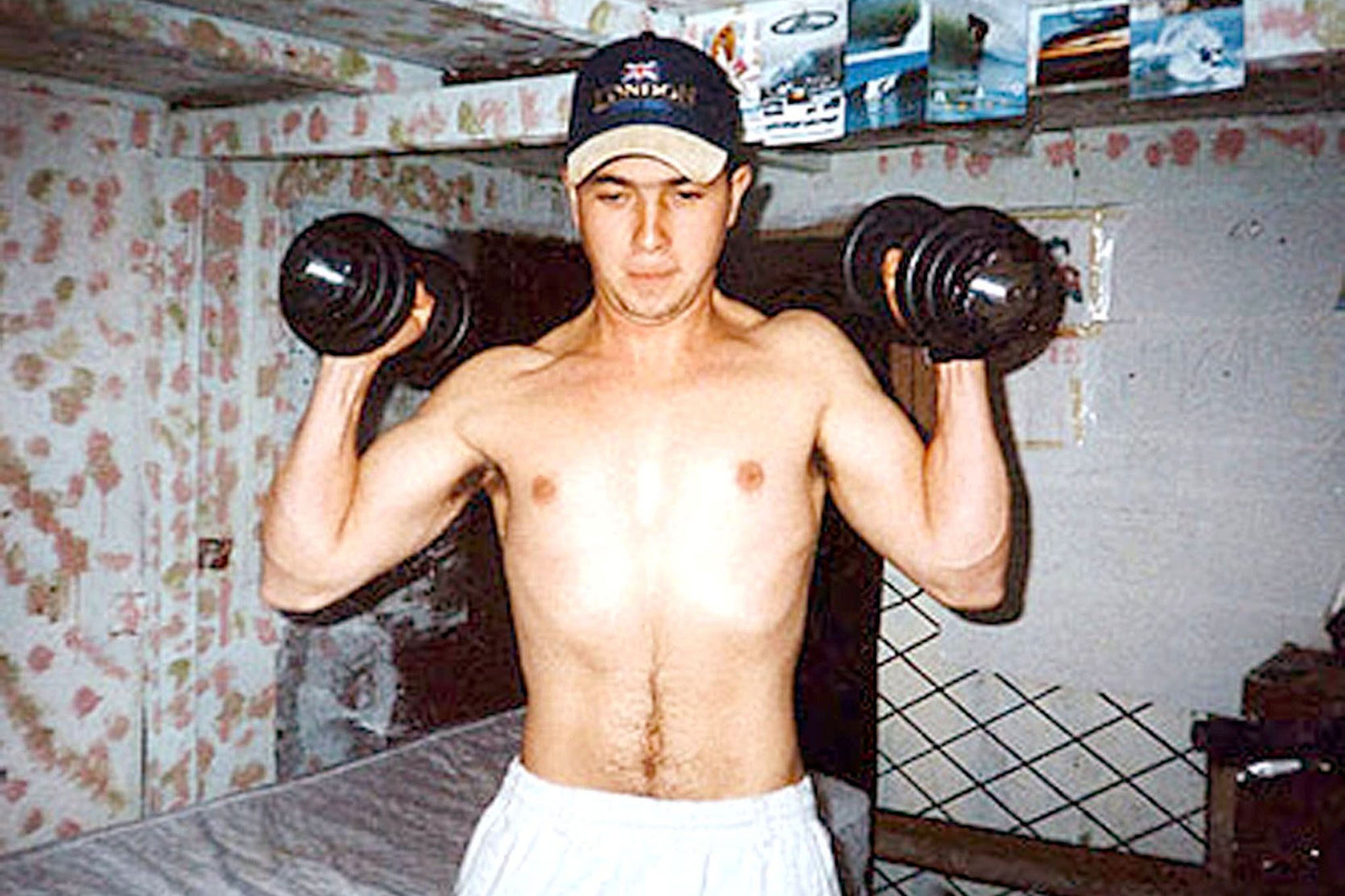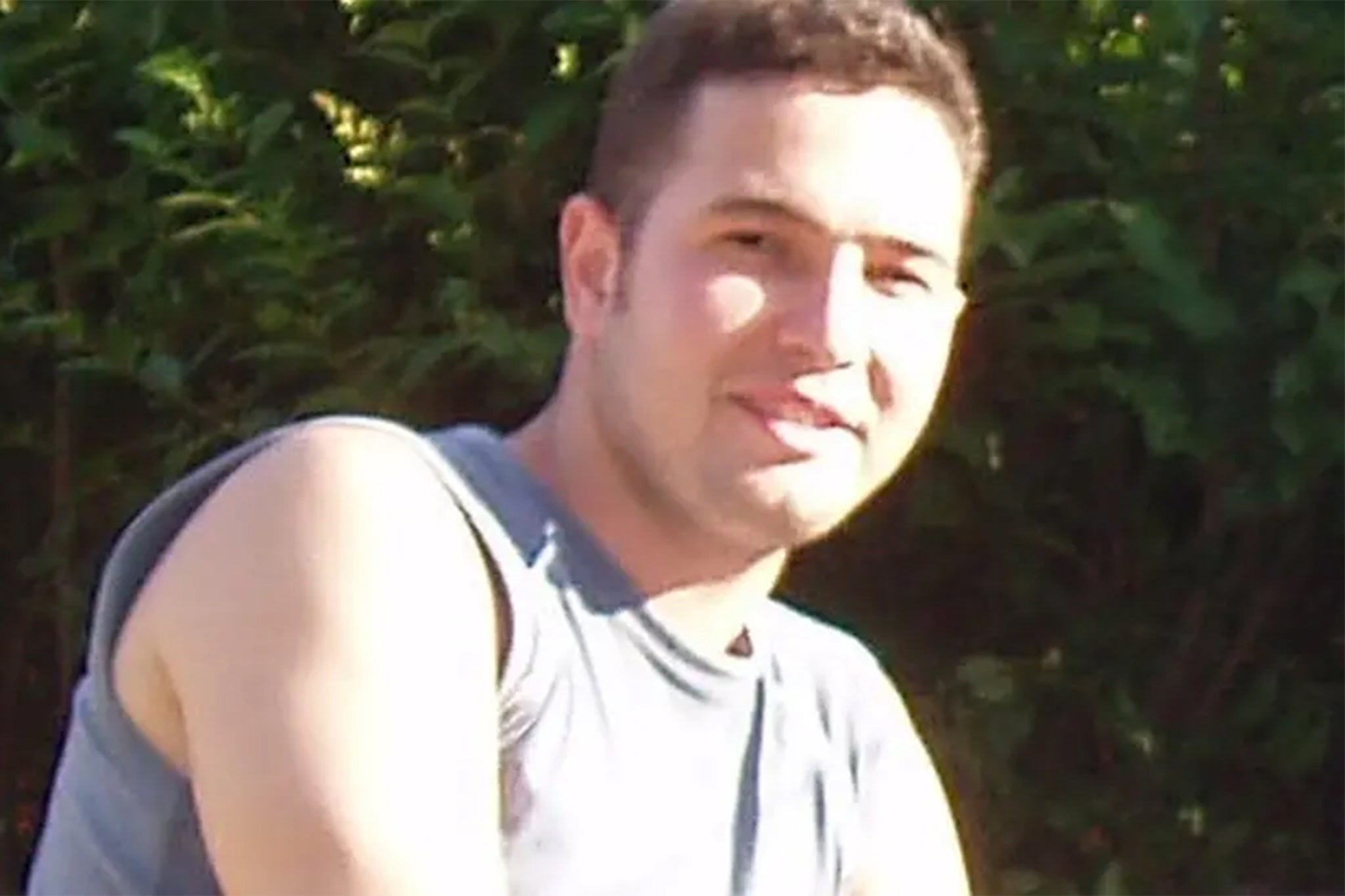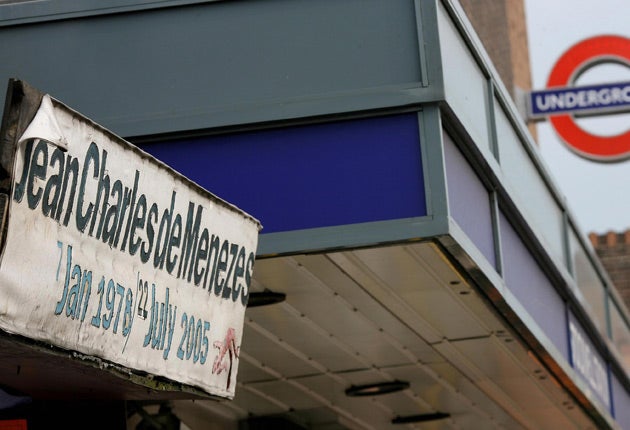Who was Jean Charles de Menezes? The man mistaken for a terrorist and shot dead by police in 2005
The 27-year-old’s death in the aftermath of the London 7/7 bombings sparked international protests

Your support helps us to tell the story
From reproductive rights to climate change to Big Tech, The Independent is on the ground when the story is developing. Whether it's investigating the financials of Elon Musk's pro-Trump PAC or producing our latest documentary, 'The A Word', which shines a light on the American women fighting for reproductive rights, we know how important it is to parse out the facts from the messaging.
At such a critical moment in US history, we need reporters on the ground. Your donation allows us to keep sending journalists to speak to both sides of the story.
The Independent is trusted by Americans across the entire political spectrum. And unlike many other quality news outlets, we choose not to lock Americans out of our reporting and analysis with paywalls. We believe quality journalism should be available to everyone, paid for by those who can afford it.
Your support makes all the difference.In his thrice-weekly phone calls home, Jean Charles de Menezes told his mother he was safe and happy in London. The police did not even carry guns, he said.
But on the morning on 22 July 2005, Mr de Menezes was shot seven times in the head and killed by armed police as he traveled to work on the Tube.
The 27-year-old Brazilian - who worked as a kitchen porter - was mistaken for being a terrorist a fortnight after 52 people died during the July 7 bombings in the captial.
His death became one of the biggest crises in British policing history, which sparked international protests and led then-Met Police commissioner Sir Ian Blair to apologise to Mr de Menezes’s family.
Now, the police marksman who shot the young man at point blank range has spoken out for the first time in a new documentary.
Here, The Independent takes a look at who Mr de Menezes was and the circumstances that led to his death.

Who was Jean Charles de Menezes?
Born in 1978, Mr de Menezes grew up on an isolated farm in Brazil. At age 14, he left to pursue his studies and lived with an uncle in an impoverished area of the sprawling city of São Paulo.
By the time he was 18, he had overcome the odds to complete his professional diploma. It was the piece of paper that would allow him to swap a life of odd jobs in crime-ridden ghettos for a home in London.
After travelling to Britain on holiday, during which he may have worked illegally, he obtained a five-year residency permit.
Such was his desire to make the most of the opportunity, the Brazilian had mastered English within four months of his arrival in Tulse Hill, south London, in March 2002.

To relax, the 27-year-old would watch television - a favourite programme was EastEnders - or hang out with friends in a Brazilian bar close to Oxford Street.
He told relatives his dream was to build a successful career and earn enough money to return to the family home near the city of Gonzaga, in Minas Gerais, south-east Brazil, and set up a company.
At the time, friend and work colleague Gesio Cesar D’Avila, 37, told The Independent: “He was happy in London. He liked all the different cultures on his doorstep. He wanted to go home as a success.”
What happened to him?
Stepping off the No 2 bus at 9.46am on 22 July 2005, Mr de Menezes made the kind of decision that is second nature to Londoners used to the unpredictability of the city’s transport network.
Realising the Tube station he was heading for was closed, he jumped back on the bus he had just alighted and carried on towards Stockwell. That split-second, seemingly innocuous decision cost him his life.
Unbeknown to Mr de Menezes, he was being tailed by police who had been monitoring the entrance to his block of flats, where a suspected member of the terrorist cell that carried out the failed 21 July bombings had lived.
The attempted attack the day before Mr de Menezes’s death had seen a group of would-be suicide bombers target London transport links again, although their devices did not explode.

Officers thought thought the U-turn was a “typical anti-surveillance” technique and convinced them he was a terrorist, when they pursued him down the Tube station’s escalator’s and into the carriage.
Making his way along the platform with his gun hidden behind his right leg, the armed police officer entered the carriage and was alerted to Mr de Menezes’s presence by a surveillance officer.
He pointed at the seated Brazilian and shouted “He is here”. As Mr Menezes stood up, the surveillance officer pinned him down and he was shot dead.
What was the aftermath?
In 2006, the Crown Prosecution Service decided that no police officers should be prosecuted over Mr de Menezes’ killing.
However, the Metropolitan Police was fined £175,000 with £385,000 costs after being found guilty of endangering the public.
In 2009, a four-year legal battle by the family of Mr de Menezes ended when they negotiated a settlement with the Metropolitan Police.
The sum of money involved in the settlement was reported to be just over £100,000 and the family’s legal costs were paid.
Join our commenting forum
Join thought-provoking conversations, follow other Independent readers and see their replies
Comments